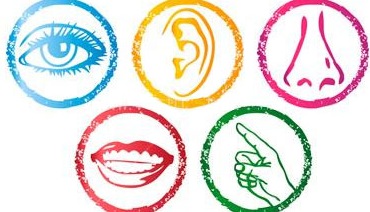
Having blogged about ‘How to Stop Over-Eating’ and ‘How to Beat Sugar Cravings’ I wanted to investigate how our SENSES influence food intake i.e. those subconscious cues that could potentially be sabotaging our conscious healthy efforts!
Research has shown the following – they may not all apply to you but the observations are interesting, and knowing about them could help with your weight loss or healthy eating efforts!
1) Smell
What does the research say?
- The smell of oranges, rather than chocolate, caused women who were trying to lose weight to eat around 60% less chocolate when then presented with a buffet of fruit and chocolate.
- The stronger the smell, the smaller the bite. People who ate vanilla custard in a laboratory ate smaller bites when they smelled a stronger cream aroma.
- Female participants were randomly assigned to using a ‘labelled chocolate lotion’, an ‘unlabelled chocolate lotion’, or an ‘unscented lotion’, and their subsequent intake of chocolate-chip cookies was recorded. Those who knew that they were evaluating a chocolate-scented lotion ate more than those exposed to the same (unlabeled) lotion, suggesting that conscious exposure to chocolate-related products may increase food intake.
Take-home message:
- Fill your home with fruit bowls, fruit scented candles & fruit scented reed-diffusers (BAN chocolate scented products!).
- Don’t be afraid of using spices such as cinnamon or nutmeg, flavours such as vanilla and fresh herbs such as mint, thyme and rosemary in baking and cooking – the stronger aroma will help you to eat less by slowing down your eating speed (our brains take 20 minutes to realise that we’re eating!).
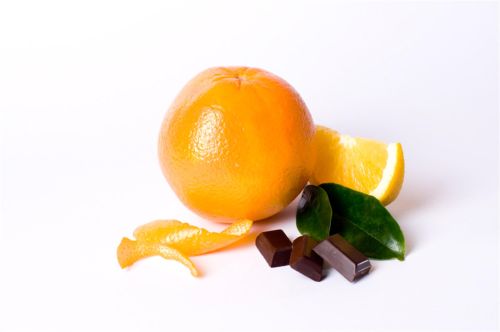
2) Sound
What does the research say?
- As background noise gets louder, people lose their ability to perceive saltiness and sweetness – possibly meaning that they may be less satisfied with the food they are eating.
- When people liked the background noise they reported the food was more liked.
Take-home message:
- Keep back-ground noise to a minimum when eating i.e. turn down the radio or CD player.
- Make sure you’re listening to something soothing or your favourite music whilst munching – especially when hosting at a dinner party 😉

3) Sight
What does the research say?
- People who ate lunch while watching TV or working at their computers were more likely to snack on cookies in the afternoon – mindless eating (i.e. eating when distracted) leads to over-eating!
- People drink 25-30% more when using a short, wide glass, in comparison to a tall, skinny glass.
- Using larger plates/bowls can lead to eating a whopping 30% more!
- Participants drank less from a red labeled cup than from a blue labeled cup, and ate less snack food from a red plate than from a blue or white plate. These results suggest that red functions as a subtle stop signal that works outside of focused awareness and thereby reduces incidental food and drink intake.
Take-home message:
- Turn OFF the TV when eating and eat at a table, not at your desk!
- Drink from tall, thin glasses when they are calorific, including alcohol! Use short, wide glasses when drinking water or calorie-free fluids.
- Invest in smaller meal plates and bowls.
- Buy red crockery (!)
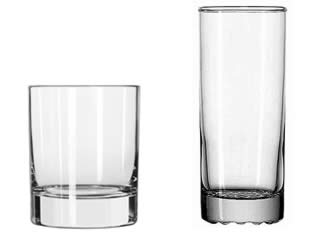
4) Touch
What does the research say?
- When pouring from larger packets of food we prepare and eat 20-25% more food!
Take-home message:
- Make sure to decant any ‘family size packs of food’ into smaller containers!
- Weigh out your food before cooking, according to the serving suggestion on the packet (don’t just pour it in!).
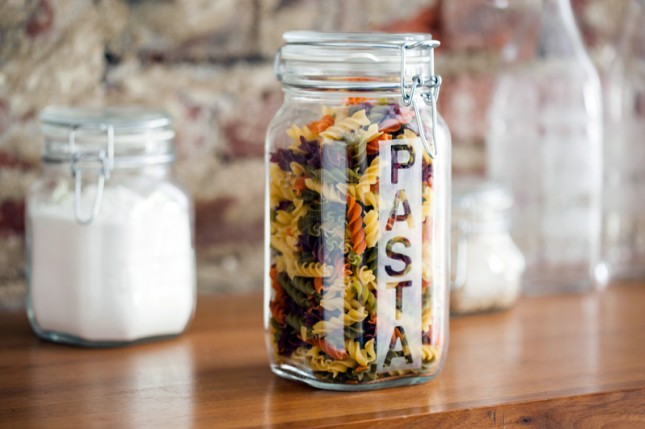
5) Mood & Taste Cravings
What does the research say?
- When people are put in a bad mood, they are more likely to reach for sugary and high-fat snacks.
- Negative emotions make people prefer a snack rather than a proper meal and eat fewer vegetables.
- Unfortunately good moods don’t necessarily make you eat good stuff. People do seem to eat more when they are in a good mood, but just more of everything rather than specific foods.
Take-home message:
- Learn to comfort yourself WITHOUT food – do more of what you enjoy e.g. calling a friend, taking a bath, reading a magazine, having a pamper night.
- When in a good mood, prepare larger portions of healthy meals so that you can freeze them for when you are in a bad mood and ‘can’t be bothered cooking’ – load them with vegetables too!
- Control yourself at happy celebrations e.g. a wedding/party – have a light snack before you go such as a piece of fruit or yoghurt so that your head does the food choosing and not your stomach!
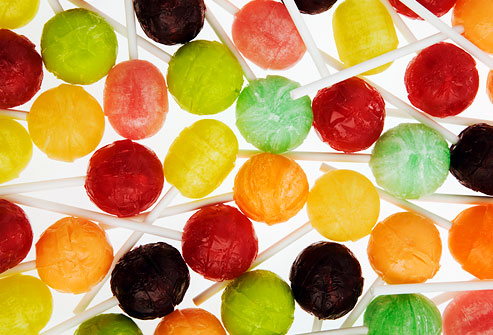
I hope you find this blog post useful!
*This blog post was written in collaboration with Fragrances Direct who provided me with a gift of value for the time it took me to write it. The words written however are 100% my own and were not influenced by the incentive received. I do not promote this company more than other companies who have not sponsored a blog post. Please read my disclaimer page for more information.
.. I love fragrances as they can help to enhance your mood & we all know that a positive mood is essential for keeping on track with our goals! If you’re interested, my favourite are:
For Women: Nina Ricci for fruity & floral fragrances (for day time) and Sarah Jessica Parker for musky & aromatic tones (for evening).
For Men: Davidoff for fresh, woody & spicy fragrances (for day time) and Guerlain for warm & fruity fragrances (for evening)
After all, if we’re eating well & exercising then we deserve to smell great too!
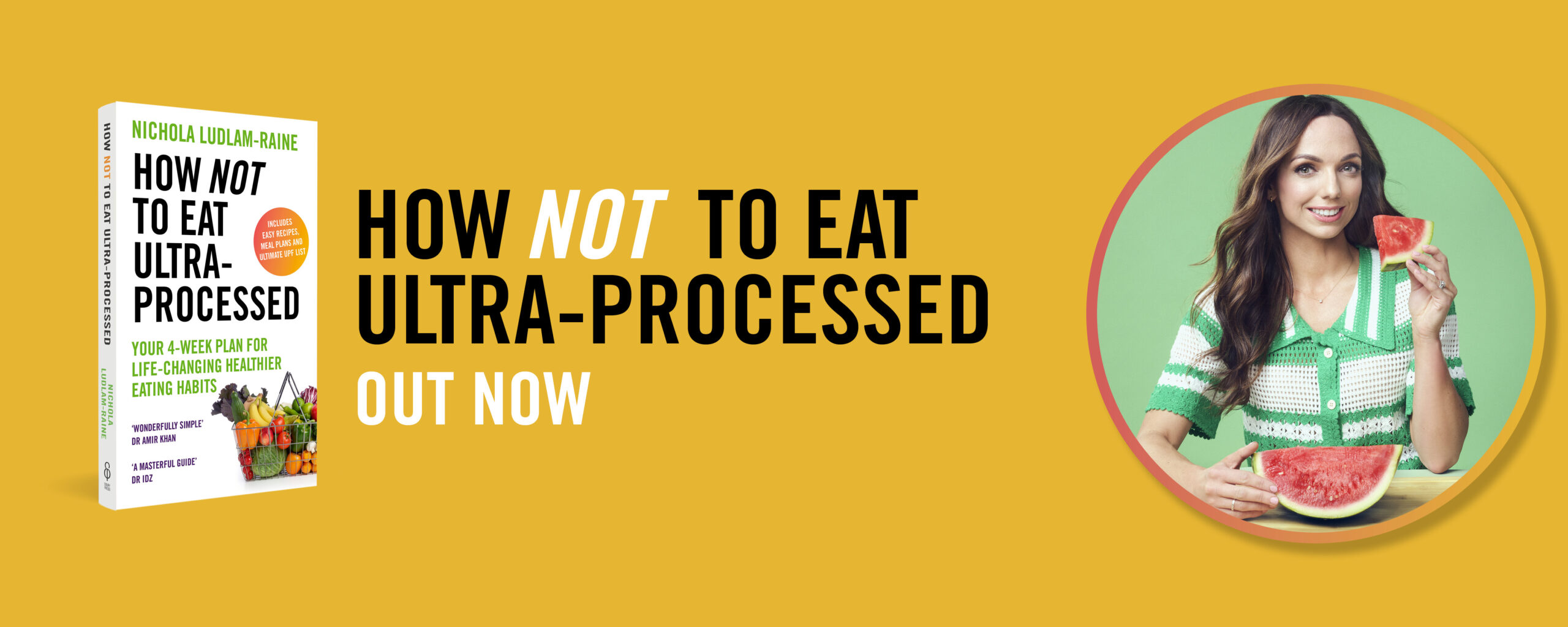
Totally enjoyed the read and yes, since my house has more fruit and herbs in it I find I’m less likely to binge on chocs…..!!
Haha I love that, thanks Andy!!